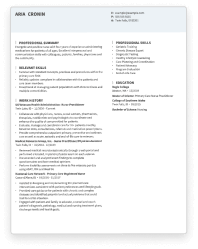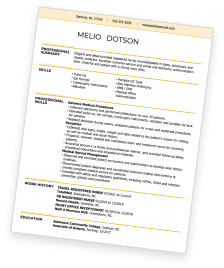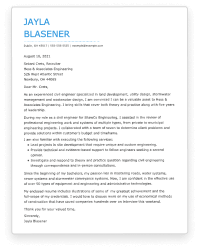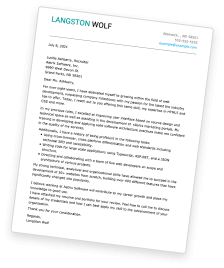Lawyer Resumes: Overview
Lawyers, also known as attorneys, advise and represent clients in criminal and civil proceedings and business matters and analyze and interpret laws and regulations for individuals and organizations.
Lawyers work in various environments, such as:
- Law firms
- Corporate legal departments
- Government agencies
- Non-profit organizations
- Solo practices
To excel in this profession, lawyers must possess strong analytical, research, and communication skills and a deep understanding of the law and its applications.
Use our free guide to help you build a resume for your next lawyer job opportunity. We have an entire collection of customizable resume examples and downloadable templates at your disposal!
Lawyer Resume Example
Here is a great example of a resume for a lawyer which has the professional design and qualifications that make it an excellent template for you to use.
-
Professional Layout:
The resume's well-organized design conveys a sense of professionalism and attention to detail, especially with its traditional format, which is crucial for a lawyer's resume.
-
Clear Typography:
It employs a clear, legible font and well-organized formatting, ensuring essential information is easy to find. Creating properly formatted and easy-to-read documents is an integral part of a lawyer’s job, so ensure your resume demonstrates your ability to create a well-structured document.
-
Relevant Legal Experience:
The resume effectively displays the applicant's extensive legal experience, highlighting specific quantifiable achievements, such as "managed all stages of litigation in court for an average of 15 cases per day", and demonstrating their ability to handle complex cases.
-
Professional Summary:
This example of a lawyer’s resume features a well-written professional summary that is concise and persuasive. The summary highlights personal qualities and skills that are necessary for the role of a criminal defense lawyer.
Lawyer Resume Sample
Take a look at this other exceptional lawyer resume sample, which can be used for almost any legal job opportunity.
-
Appropriately Engaging:
This example of an attorney resume makes a memorable first impression with its visually appealing, lawyer-appropriate design. It has clearly labeled headings and sections to make it easy to read.
-
Professional Tone:
This example's clean and modern aesthetic demonstrates the high level of professionalism expected from lawyers. A standard font and well-balanced use of text and white space create a solid first impression.
-
Emphasizes Key Skills:
The combination format effectively presents the applicant's key legal skills and certifications, making it clear that they are a well-qualified lawyer. Placing the skills at the top of the document immediately brings the most relevant skills to the hiring manager’s attention.
-
Relevant Qualifications:
This resume showcases the applicant's qualifications, expertise, and experience, giving employers a strong sense of their suitability for legal positions.
How to Write a Lawyer Resume: A Step-by-Step Guide
Knowing how to write an effective resume is a key step to getting the job you want. Create your stand-out lawyer resume by following our handy step-by-step guide.
-
Choose a Format:
When building your lawyer resume, you've got a range of options at your disposal. Explore the various resume formats available and choose the one that aligns best with your requirements. The chronological resume format stands as the most prevalent choice, with its primary focus on your work history.
On the other hand, the functional resume format provides an alternative strategy. Although it's less common and may not be as ATS-friendly, it can be an excellent option, especially for those with limited experience. Recent high school graduates, for instance, can capitalize on its emphasis on transferable skills. Lastly, there's the combination resume format, incorporating elements from both the chronological and functional approaches.
-
Contact Information:
Include your name, phone number, email address, location (city and state), and LinkedIn profile (if applicable). Always ensure your contact information is accurate and up to date, and place it at the top of your resume to make it easy to find.
-
Summary or Objective:
At the top of your resume, craft a three- to four-sentence professional summary or objective statement that gives potential employers a clear sense of your legal career intentions and the value you could bring as a lawyer. If you have relevant work experience, write a resume summary and focus it on your key qualifications, skills, and accomplishments that are specifically relevant to the position.
Alternatively, opt for an objective statement if you recently graduated or are shifting your career focus. Here, briefly describe your professional goals and draw parallels between your legal aspirations and the open position. As a lawyer, you most likely will not use this option, but it is still good to know about.
-
Work History:
Detail your work experience, including key responsibilities and achievements. Quantify those accomplishments with numbers and percentages to demonstrate your value to an employer. For example, “successfully handled 220 caseloads a year” or “expanded resources for the legal help desk, improving capacity by 30%.”
-
Skills:
Highlight your legal skills, including research, negotiation, litigation, and legal writing. However, it is also wise to include soft skills such as communication, organization and time management to demonstrate your ability to do the job.
-
Education:
List your academic qualifications, including your law degree and any relevant licenses and certifications, as well as your educational institutions. Provide the name, location, and graduation date if applicable.
-
Additional Sections (optional):
Add any other relevant sections, such as publications, speaking engagements, awards, professional associations, or community involvement to help further your qualifications.
Key Skills and Certifications For Lawyer Resumes
Lawyers should possess a blend of hard skills and soft skills along with essential licenses and certifications that must be sufficiently displayed on their resumes. Here are some of the most popular skills and certifications to consider:
Top 5 Hard Skills for Lawyer Resumes
- Legal Research: Proficiency in legal databases and research methodologies is essential in any law career. This skill ensures that lawyers can gather comprehensive and up-to-date legal information, which is crucial for building strong cases and providing sound legal advice.
- Litigation: The ability to represent clients in court effectively is a fundamental hard skill for lawyers. Litigation skills include courtroom procedures, case strategy, and oral advocacy, making it critical for legal professionals involved in trial work.
- Contract Law: Expertise in drafting and negotiating contracts is indispensable for lawyers, particularly those dealing with transactional law. A strong command of contract law ensures that legal agreements are precise, legally binding, and meet clients’ needs.
- Legal Writing: Strong writing skills for legal documents are a cornerstone of a lawyer’s work. This hard skill enables lawyers to draft clear and persuasive legal documents, such as contracts, briefs, and legal opinions, ensuring that clients’ interests are effectively represented.
- Negotiation: Effective negotiation tactics and strategies are essential for lawyers, especially those in dispute resolution. This skill allows lawyers to reach favorable settlements and agreements for their clients, often avoiding the need for protracted litigation.
Top 5 Soft Skills for Lawyer Resume
- Communication: Excellent written and verbal communication skills are vital for lawyers. Clear and persuasive communication ensures that legal arguments, advice, and negotiations are effective and well-received by clients, colleagues, and the court.
- Analytical Thinking: Strong problem-solving and critical thinking abilities are integral to a lawyer’s success. These skills enable lawyers to analyze complex legal issues, identify relevant precedents, and develop sound legal strategies.
- Client Management: Building and maintaining strong client relationships is a critical soft skill for lawyers. Clients rely on lawyers not only for legal expertise but also for trust and confidence, making effective client management essential for success.
- Time Management: Efficiently managing caseloads and deadlines is crucial for lawyers, who often juggle multiple cases simultaneously. Effective time management ensures that lawyers can meet client needs and legal requirements promptly and accurately.
- Ethical Judgment: Upholding the highest ethical standards in law practice is a cornerstone of the legal profession. Lawyers are bound by codes of ethics, and ethical judgment is essential for maintaining trust, integrity, and professional reputation in the legal field.
Top 5 Certifications for Lawyers
- Bar Admission: Essential for practicing law in a specific jurisdiction. Bar admission is a legal requirement demonstrating a lawyer’s eligibility to practice in a particular location.
- Certified Legal Specialist: Demonstrates expertise in a particular area of law. This certification indicates a lawyer’s specialized knowledge and skills in a specific legal field, increasing their credibility.
- Notary Public: Allows you to certify documents and administer oaths. Being a notary public enables lawyers to provide added legal services, such as certifying affidavits and documents.
- Mediation Certification: Valuable for lawyers specializing in dispute resolution. Mediation certification equips lawyers with the skills to facilitate negotiations and settlements between parties, a valuable asset in resolving legal conflicts.
- Advanced Legal Technology Certifications: Relevant in the age of legal tech. These certifications demonstrate a lawyer’s proficiency in using technology for legal research, document management and improving overall efficiency in legal practice.
Such technical skills, soft skills, and certifications must be front and center on your lawyer’s resume. However, always make sure to tailor your resume specifically to the job you’re applying to and highlight the most relevant qualifications.
Helping Job Seekers Like You
8 Tips For Writing A Lawyer Resume
- Tailor Your Resume: Customize your resume for each legal position you apply for. Emphasize the skills and experiences most relevant to the job to demonstrate your alignment with the role.
- Showcase Skills and Experience: Include your most pertinent knowledge and skills at the beginning of your resume to immediately grab the employer’s attention.
- Quantify Achievements: Detail successful cases or settlements using numbers whenever possible. For example, “successfully litigated 20 cases in one year” or “negotiated 30 settlements for the firm, eliminating the need for costly litigation” to demonstrate your impact as a lawyer.
- Use Action Verbs: Include dynamic language to vividly depict your legal responsibilities and accomplishments, making your resume more engaging. For example, you can use words like initiated, performed, negotiated, or achieved to describe your abilities.
- Include Volunteer Experience: Mention any pro bono work or volunteer legal services you’ve provided to showcase your commitment to the community and your profession.
- Craft a Compelling Resume Summary: Ensure your resume features a professional summary that reflects your writing skills and provides a snapshot of your legal expertise.
- Highlight Technical Skills: Showcase your proficiency with legal software and technology, illustrating your adaptability in the evolving legal landscape. Advances in legal tech, eDiscovery, and cloud-based legal practice management systems make technical knowledge a much sought-after skill.
- Proofread Thoroughly: Carefully proofread your resume to eliminate errors, ensuring it reflects the attention to detail expected of lawyers. Error-free writing is essential to most legal roles, so even a tiny mistake can create the wrong impression.


Save Time With Hloom's Resume Builder
Key Takeaways
Lawyers work in various environments, including law firms, corporations, non-profits and government agencies.
A lawyer's resume should highlight essential legal skills, soft skills, licenses and certifications.
Your resume's design and content are equally important for making a solid impression.
Tailoring your resume to the specific legal position you are applying for demonstrates your interest in and alignment with the role.
Attention to detail is vital in a legal career, so proofread your resume carefully.
Save Time With Hloom's Cover Letter Builder







